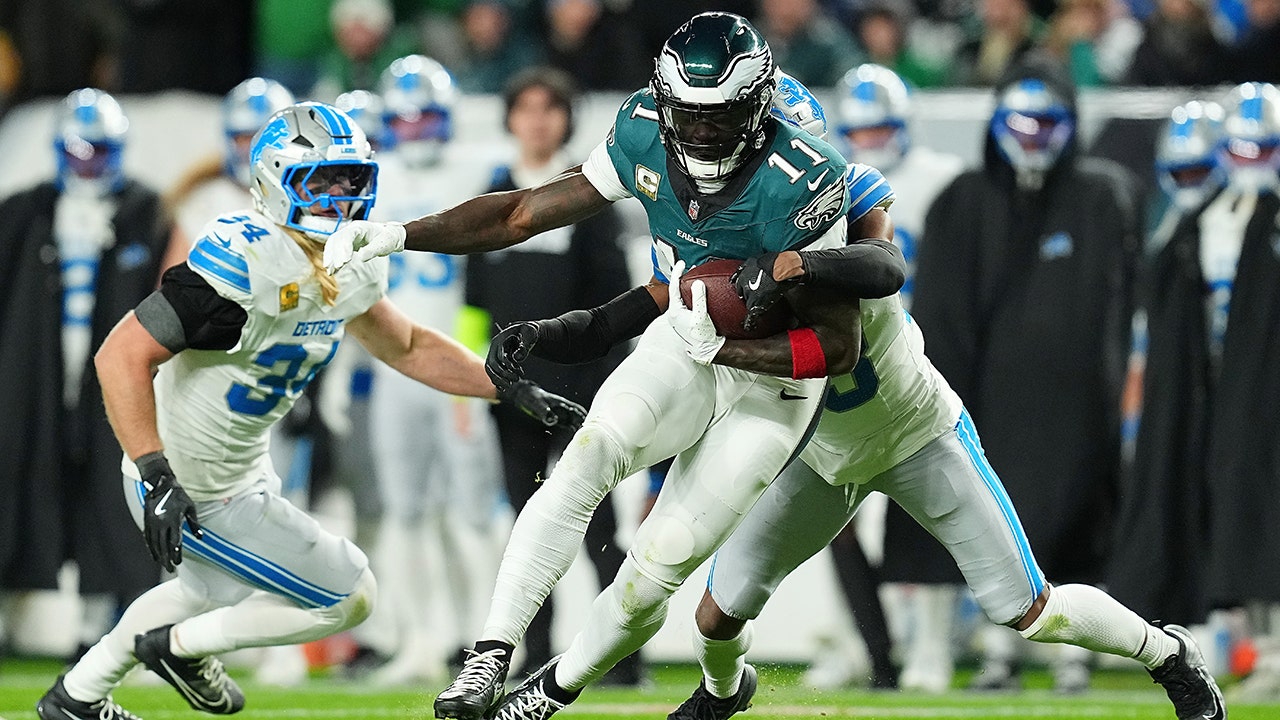The final whistle blew, but the echoes of controversy rang far louder than any celebration in Philadelphia on Sunday night. The Philadelphia Eagles emerged victorious over the Detroit Lions with a 16-9 scoreline, yet the narrative was dominated by a single, late-game penalty that sent shockwaves through the NFL community and ignited the fury of veteran broadcaster Cris Collinsworth.
With just 1:51 remaining on the clock, the Lions, trailing by a mere seven points, had staged a crucial defensive stop. They were on the verge of forcing an Eagles punt, a moment that would have granted their offense a vital opportunity to drive down the field, potentially tying the game or even snatching a dramatic last-second win. The tension was palpable, the stakes incredibly high. Then, the yellow flag flew.
The Call That Changed Everything
A pass interference penalty was called against a Detroit Lions cornerback. Instantly, the dynamics of the game shifted dramatically. Instead of relinquishing possession, the Eagles were granted an automatic first down, allowing them to effectively run out the clock and secure their narrow victory. It was a pivotal moment, a game-altering decision that left many, especially those aligned with the Lions or simply advocating for fair play, utterly incredulous.
“That is an absolutely terrible call!” bellowed Cris Collinsworth from the NBC broadcast booth, his voice laced with disbelief and frustration. “You cannot make that call at that point in the game. It completely changes the outcome.”
Collinsworth, known for his incisive commentary and willingness to speak his mind, did not hold back. He vehemently argued that the contact, if any, was incidental and certainly not egregious enough to warrant such a severe penalty, particularly given the game’s critical juncture. His sentiment quickly resonated across social media and among countless viewers who felt the Lions had been unjustly deprived of a legitimate chance to compete for the win.
Referee Alex Kemp Defends the Indefensible?
Adding another layer to the escalating drama, referee Alex Kemp, the man in charge of the officiating crew, later defended the call. While the specific details of his defense were brief, the mere act of upholding a decision that was so widely criticized only intensified the debate. For many, Kemp’s stance only served to underscore a perceived disconnect between the officials’ interpretation of the rules and the practical realities of high-stakes NFL competition.
- The Impact: The penalty effectively robbed the Lions of their final possession, negating a hard-fought defensive effort.
- Broadcaster’s Fury: Collinsworth’s strong condemnation highlighted widespread disbelief.
- Fan Backlash: Social media erupted with outrage, questioning the integrity of officiating.
- Rule Interpretation: The incident reignited calls for clearer, more consistent application of pass interference rules, especially in clutch moments.
The incident wasn’t just about a single game; it tapped into a deeper well of frustration among NFL fans regarding officiating consistency and the impact of subjective calls on objective outcomes. Critics argue that such late-game decisions, especially those deemed questionable, can taint the purity of competition and leave a sour taste for all involved, overshadowing the athletic achievements of the players.
The Lingering Question of Fairness
This controversy feeds directly into the ongoing discourse about the role of officiating in modern sports. Should referees be more reluctant to throw flags in critical, game-deciding moments unless the infraction is undeniably clear and impactful? Or should they call every penalty strictly by the book, regardless of the game’s context? The NFL consistently grapples with these philosophical questions, often finding itself caught between the letter of the law and the spirit of the game.
The Eagles secured the win, but the lasting image from Sunday night will not be their dominant defensive performance, but rather the yellow flag that fell and the fiery words of Cris Collinsworth. It served as a stark reminder that in the unforgiving world of professional football, sometimes the greatest opponent isn’t on the opposing team, but rather a single, contentious decision from the men in black and white stripes.
A Controversial Precedent?
Such calls, particularly those made with seconds ticking away, have historically led to fierce debates and often prompted reviews of officiating standards. The NFL’s continuous effort to balance speed of play with accuracy of calls means that controversies like this are an unfortunate, though perhaps inevitable, part of the landscape. The human element of officiating, for all its necessity, remains a constant variable capable of shifting the fortunes of an entire season.
Ultimately, the contentious pass interference call against the Detroit Lions was more than just a penalty; it was a catalyst for a broader discussion about fairness, the unwritten rules of clutch officiating, and the undeniable power officials wield in shaping the narrative and outcome of America’s most popular sport.


